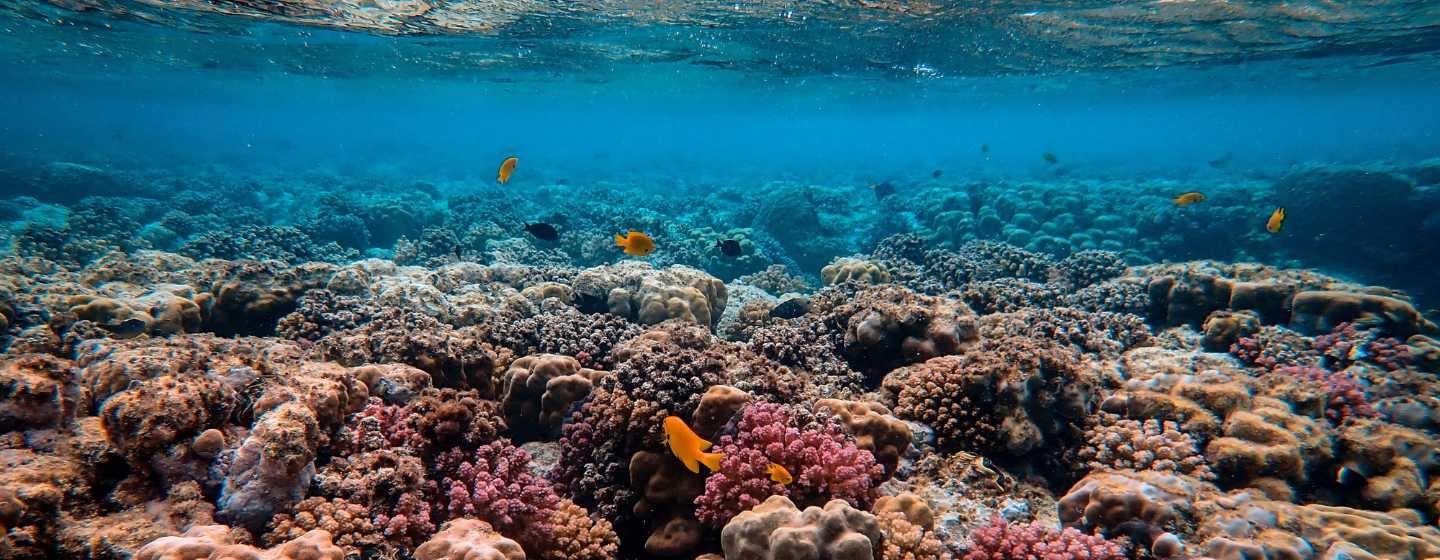Secrets of Ocean Sponges


Carrie Bow Cay is a postage-stamp-sized island off the coast of Belize. Professors and students at the University of North Carolina Wilmington are heading there in the spring of 2023.
But it’s not for spring break.
The group is heading to the Mesoamerican Caribbean Barrier Reef next to the island to gather sponges and water samples. They’re working with the Smithsonian’s Caribbean Coral Reef Ecosystems Project.
The team wants to know more about what sea sponges are doing to the environment as they process the large amounts of seawater they pump every day.
Funded by a $1 million grant from the U.S. National Science Foundation, their work is at the forefront of research into coral reef systems.
“We know that sponges are taking over the reef as coral health declines,” said Wendy Strangman, Ph.D., assistant professor of chemistry and biochemistry at WNCW. “The Caribbean reefs of the future are likely going to be dominated by sponges, so we are trying to understand the impact sponges have on the nutrition in the seawater around the reefs.”
The team will gather water samples before and after the water is processed by the sponges to learn more about what dissolved compounds the sponges are absorbing and what effect it is having on nutrients and other chemicals in the water column around the reef.
Those samples will then be studied at the Center for Marine Science labs on the UNCW campus.
“The study is really looking at basic, but unknown questions about how reef ecosystems function,” said Ken Halanych, Ph.D., executive director of UNCW’s Center for Marine Science. “It’s vital that we understand that because coral reefs are critical for biodiversity in the ocean.”
“Think of the dissolved compounds like sugar added to a cup of coffee,” said Joe Pawlik, Ph.D., professor of biology and marine biology at UNCW. “The sugar dissolves in the coffee, however the compound still exists in the liquid and can be absorbed as food, measured and analyzed.”
Earlier studies on the diets of giant barrel sponges in the Caribbean found that it is made up of dissolved compounds, but what the compounds were is unknown.
The team will also study the role of seaweed or algae on the reefs. Algae produce a complex mix of dissolved compounds, and it’s unclear what the sponges do with those compounds in the filtering of seawater.
“Any information we can gather about the compounds the sponges are consuming will be new information to science,” adds Pawlik.
Corals are threatened by changing ocean conditions and emerging diseases like Stony Coral Tissue Loss. But new aquarium technology is allowing researchers to simulate the sun, the moon, and ocean conditions in the lab allowing them to preserve and restore wild populations with increased genetic diversity and resiliency. Learn about the potential created by this new setup, and the innovation happening at UNC Wilmington.